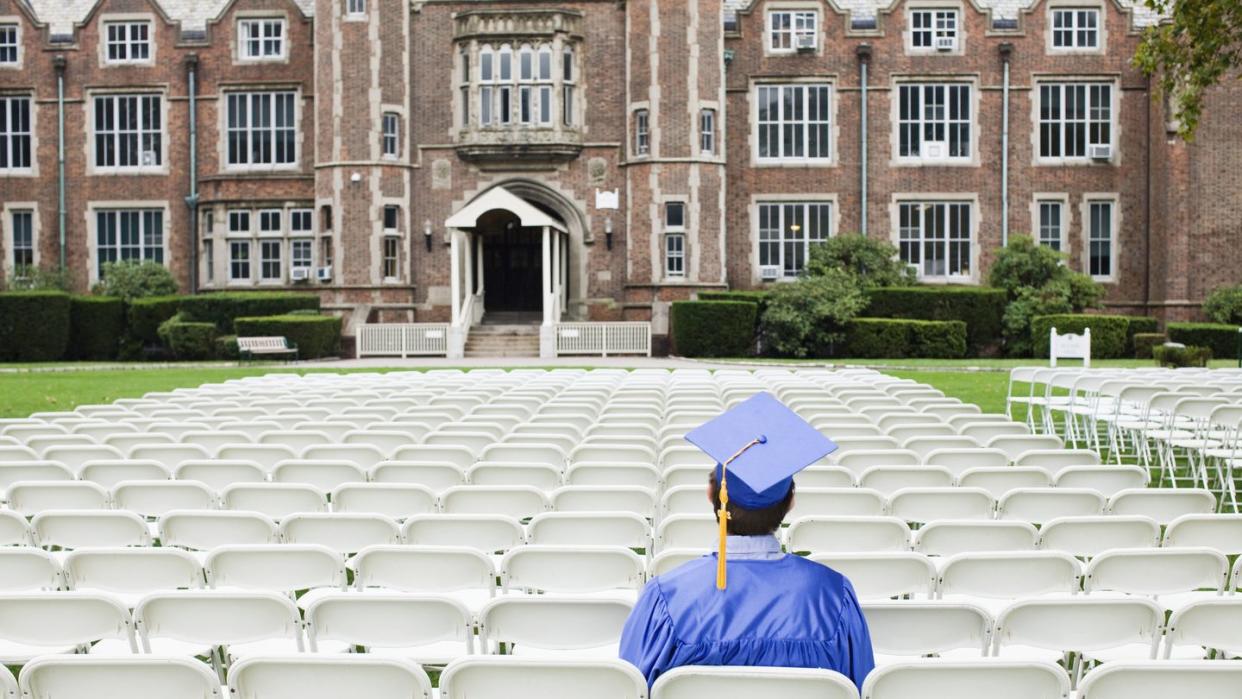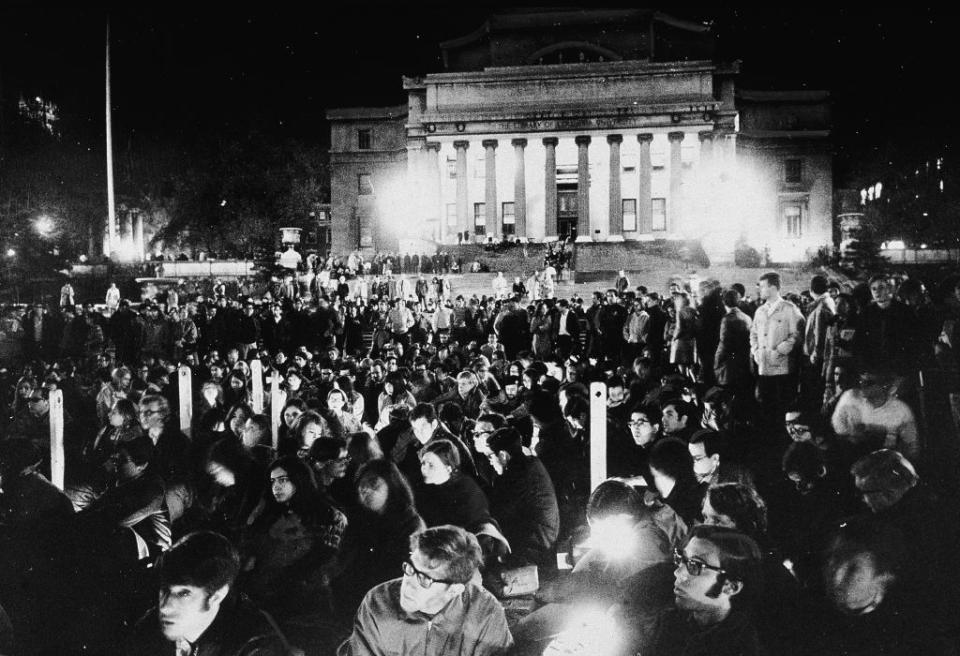What Does a Canceled Commencement Look Like?

"Hearst Magazines and Yahoo may earn commission or revenue on some items through these links."
Last week the University of Southern California announced that it would not proceed with its commencement ceremony, which typically brings 65,000 people to campus and features speeches and a few honorary degrees. But as of today USC is still planning on going forward with each of its component schools’ graduation ceremonies—albeit with limited tickets available and stepped-up security. That’s good news for the students who have been working toward this event for years, and good news for their families, who have taken time off from work, booked plane tickets, and paid for hotel rooms.
But it is not likely to be the end of USC’s problems, which began on April 15, when it made the decision to bar valedictorian Asna Tabassum from speaking at commencement. Tabassum had been accused of antisemitism in her criticism of Israel and the conflict in Gaza, and the press release from the university said she would not speak in order “to maintain the safety of our campus and students.” After a few days of widespread criticism for excluding Tabussum, the administration told all the speakers scheduled to speak at commencement that they were released from the commitment. The following week, after USC’s administration called the police on students protesting the war and the censorship of the valedictorian, it announced that there would be no general commencement at all.
USC is not alone in struggling with how to balance free speech with concerns about Jewish students’ safety on campus, and it may not be alone in canceling graduation plans. Protests, encampments, and building occupations have broken out on 64 campuses since the president of Columbia University asked the NYPD to remove protestors. Few institutions have gone as far as USC, Columbia, the University of Texas, and Emory University, all of which made national news with video footage of cops arresting students and professors.
It is uncertain whether campus protests will affect any of the thousands of other graduation ceremonies scheduled for the next few weeks, but if they do it is unlikely that the number will approach anything like what happened in 1970. That is the year National Guard soldiers shot 13 students at a Vietnam War protest at Kent State University, killing four and paralyzing one.
Kent State is now remembered as a turning point in American opposition to the war and a shameful day in our history, but what is less well remembered is the wave of student boycotts the massacre started. As in our present moment, the decision to use force against students inspired even more protests than the original antiwar cause did. A June 1970 study found that in the days immediately after President Nixon’s April 30 announcement that the war had spread to Cambodia, “strikes and boycotts hit campuses at the rate of about 20 a day…only slightly above the normal level of protest activity.” But following the Kent State shooting, “campus protests rose to more than 100 a day for four days.” By month’s end, “at least 760 campuses—about 30 percent of all colleges and universities in the country—played some role in the first national student strike in American history.”

Hundreds of schools closed for a day or more, but 10 percent shut down for the rest of the academic year. Boston University, Hunter College, and Kent State completely canceled graduation ceremonies. At the University of Pennsylvania and Columbia, hundreds of students walked out of the graduation ceremony, while at Tufts University, 1,500 students boycotted their graduation. The University of California-Berkeley, Princeton University, and Harvard University all scaled back commencement and canceled speeches by their university presidents.
The student boycotts eventually ended, but feelings against the Vietnam War grew more widespread, in part because the campus protests brought the war home in a new way. A year later, half a million people marched on Washington to demand the end of the war.
At the same time, things calmed down on campuses, and graduation returned to normal a year later, a little less formal, perhaps, but still a central part of campus ritual and community. Over time the national students’ strike was largely forgotten, which might serve as a reminder to keep the current, much smaller crisis in higher education in perspective.
Some Americans did not forget, however. In 2021, Jackson State University in Mississippi held a commencement for the class of 1970. It had been canceled after local and state police, responding to civil rights protests, shot 14 people, killing two, including a local high school student. Even after 51 years, more than 400 people showed up to get their diplomas.
You Might Also Like

